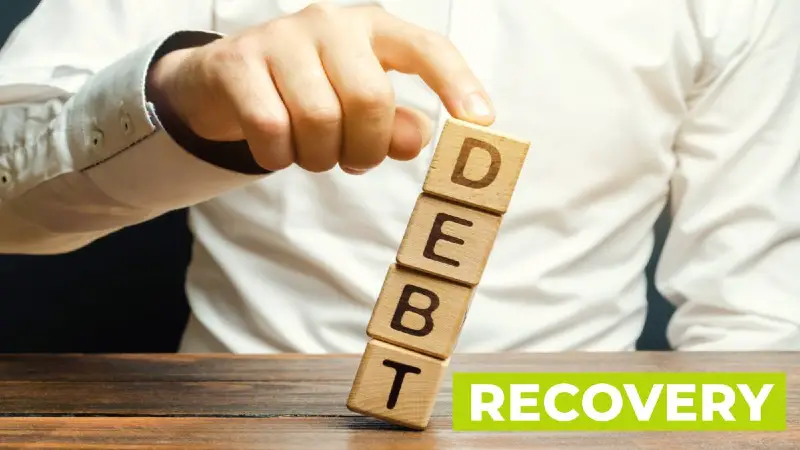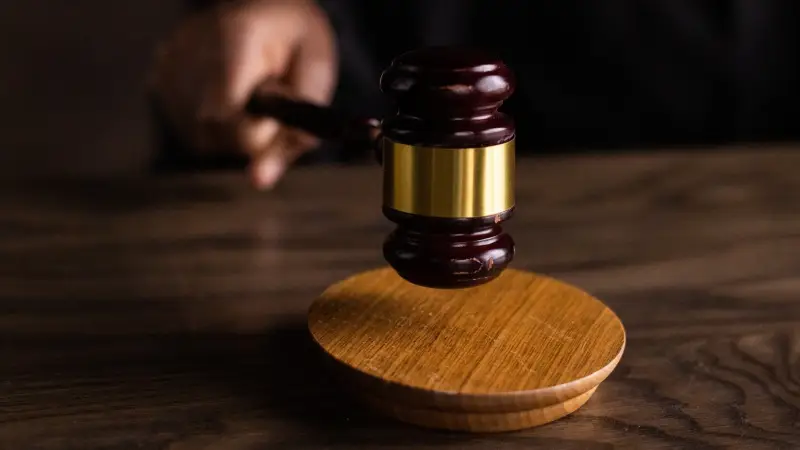
Debt recovery can be a critical challenge for small businesses, impacting their cash flow, profitability, and overall success. Recovering outstanding debts is crucial to ensure that small businesses can pay bills, cover expenses, and invest in growth. However, debt recovery can be a complex process, particularly for small business owners who may lack the resources and expertise to handle it effectively.
In this article, we will discuss the importance of debt recovery for small businesses and the challenges they face in the process. We will also highlight the need for debt recovery resources to help small businesses manage debt more effectively and recover outstanding debts. By accessing these resources, small business owners can take control of their finances and get back on track.
Table of Contents

Effective Sample Letters and Templates for Debt Recovery
Our collection of Debt Management and Recovery sample letters and templates has been created to help small business owners navigate the often complex process of debt collection. Our library of professionally written templates is designed to help you write effective debt collection letters, dispute letters, and other correspondence related to debt management and recovery.
We understand that writing these types of letters can be challenging, especially when you’re dealing with a difficult debtor. That’s why we’ve made our sample letters and templates available to you for free. You can use these resources to draft your own letters and communicate with your debtors in a professional, yet firm manner.
Take advantage of our sample letters and templates today to streamline your debt collection process and improve your chances of recovering outstanding debts. Browse our collection and choose the templates that best suit your needs. If you need further assistance or guidance, don’t hesitate to contact us.

Essential Debt Collection Laws and Regulations for Businesses
As a small business owner, it’s important to understand the laws and regulations related to debt collection in New Zealand. Failure to comply with these laws can result in penalties and legal action, which can be costly and damaging to your business’s reputation.
At NZ Debt Collection, we provide valuable information on the relevant laws and regulations related to debt collection in New Zealand. Our resources can help you understand your legal rights and responsibilities, as well as those of your debtors.
We understand that navigating the legal landscape of debt collection can be overwhelming, which is why we provide this information to you for free. Our goal is to empower you with the knowledge you need to make informed decisions and take action in a compliant manner.
Take advantage of our resources on debt collection laws and regulations to ensure that your debt collection efforts are legally sound. Contact us if you have any questions or concerns.

Master Effective Negotiation Strategies for Debt Recovery Success
Negotiation is a crucial aspect of debt recovery, but it can be challenging for small business owners to navigate. At NZ Debt Collection, we understand the importance of preserving business relationships while still recovering outstanding debts. That’s why we offer a range of tips and strategies to help you negotiate effectively and achieve a successful outcome.
Our resources cover a variety of scenarios, from dealing with reluctant debtors to negotiating a payment plan. We provide practical advice on how to prepare for negotiations, maintain a positive relationship with debtors, and find a mutually beneficial solution.
Some of our negotiation strategies include:
- Understanding the debtor’s perspective: By understanding the debtor’s situation and concerns, you can approach negotiations in a more empathetic and effective way.
- Preparing for negotiations: Preparation is key to successful negotiations. We provide tips on how to research the debtor’s financial situation, understand their payment history, and identify any potential obstacles to reaching an agreement.
- Maintaining a positive relationship: Negotiations can be stressful and emotional, but it’s important to maintain a positive relationship with the debtor. We offer advice on how to communicate effectively, listen to their concerns, and find common ground.
- Finding a mutually beneficial solution: Our resources provide tips on how to find a solution that works for both parties, such as setting up a payment plan or offering a discount for early payment.
At NZ Debt Collection, we believe that effective negotiation is key to successful debt recovery. By using our resources and strategies, you can approach negotiations with confidence and achieve a positive outcome for your business.
If you have any questions or concerns about negotiation strategies or debt recovery in general, please don’t hesitate to contact us. Our experienced team is here to provide personalized support and help you find the best debt recovery solutions for your business.

Debt Recovery Best Practices: Proven Strategies for Success
Debt recovery can be a daunting task for small businesses, but with the right approach, it is possible to recover outstanding debts and protect your cash flow. In this article, we’ll discuss some of the best practices for debt recovery that can help you manage your debts more effectively and maintain your business’s financial health.
- Maintain clear records: It’s essential to keep accurate records of all transactions, including invoices, payment receipts, and debt collection letters. Clear records will help you track outstanding debts, identify payment patterns, and take appropriate action if necessary.
- Have a debt collection process in place: Develop a clear debt collection process that outlines the steps you will take to recover outstanding debts. This process should be communicated to customers to avoid misunderstandings and clearly define expectations.
- Follow up on overdue payments: Don’t wait until an invoice is significantly overdue before taking action. Follow up with customers promptly after an invoice becomes overdue to remind them of their obligations and encourage payment.
- Be flexible: While it’s essential to follow your debt collection process, it’s also important to be flexible and willing to work with customers who are experiencing financial difficulties. Consider offering payment plans or alternative payment methods to help customers pay off their debts.
- Communicate effectively: Good communication is critical when it comes to debt recovery. Ensure that all communication with customers is professional and respectful. Use clear and concise language, and always follow up on promises made.
- Know your legal rights: Familiarize yourself with debt collection laws in New Zealand to ensure that you’re taking appropriate action and not infringing on the rights of your customers.
- Seek professional help if necessary: If you’re struggling to recover outstanding debts, consider seeking professional debt recovery services. A debt collection agency can help you recover debts more quickly and effectively, allowing you to focus on running your business.
Frequently Asked Questions
Our Frequently Asked Questions (FAQ) section is a valuable resource for small business owners who have questions about debt collection and management. It provides answers to common questions that may arise during the debt recovery process, such as:
Q: What is debt collection and why is it important for my business?
A: Debt collection refers to the process of collecting money owed by individuals or businesses. It’s important for businesses to have a debt collection plan in place to manage their finances and ensure that they are paid for goods or services provided.
Q: How do I determine whether to pursue legal action for debt collection?
A: Legal action should be pursued as a last resort. Before pursuing legal action, businesses should exhaust all other options, such as negotiation or mediation. Legal action can be costly and time-consuming, so it’s important to weigh the potential benefits and risks.
Q: What are the legal requirements for debt collection in New Zealand?
A: Debt collection is governed by laws and regulations such as the Credit Contracts and Consumer Finance Act and the Fair Trading Act. Debt collectors must follow guidelines set by the Ministry of Business, Innovation, and Employment (MBIE).
Q: How can I negotiate with debtors to recover outstanding debts?
A: It’s important to be honest about your financial situation and to only agree to a payment plan that you can realistically afford. Debt collectors may be able to negotiate a payment plan or settlement with debtors.
Q: What are the risks of not properly managing debt?
A: Failing to manage debt can result in a loss of revenue for your business and may impact your credit rating. It can also damage your relationship with customers or suppliers and result in legal action being taken against you.
These are just a few examples of the questions that our FAQ section covers. We strive to provide clear and concise answers to help small business owners navigate the often confusing world of debt collection and management.
If you can’t find the answer to your question in our FAQ section, don’t hesitate to reach out to us for personalized support. Our experienced team is always here to help you find the best debt recovery solution for your business. Whether you need advice on negotiating with debtors, understanding debt collection laws, or simply want to learn more about our services, we’re here to assist you every step of the way.